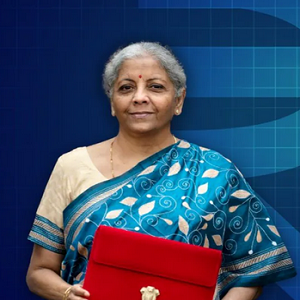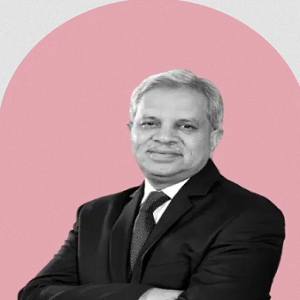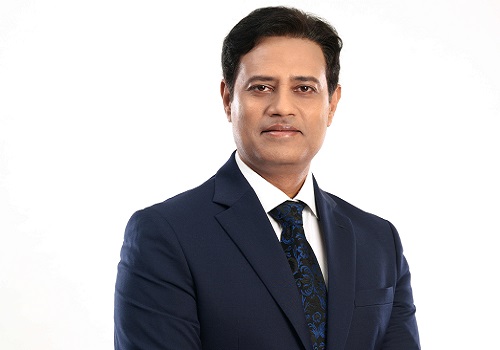Insights from Education Leaders on the Budget’s Impact on Education
 As India navigates through the intricacies of the latest national budget, the higher education sector finds itself at a critical juncture. With increasing calls for educational reform, skill development, and research funding, the new budget holds the promise of reshaping the academic landscape. Whether it’s fostering a culture of innovation, enhancing public-private partnerships, or boosting global competitiveness, the proposed allocations and policies are set to leave a significant imprint on universities, colleges, and edtech initiatives alike. In this article, we delve into the key takeaways from the budget, analyzing its implications for higher education institutions, students, and stakeholders.
As India navigates through the intricacies of the latest national budget, the higher education sector finds itself at a critical juncture. With increasing calls for educational reform, skill development, and research funding, the new budget holds the promise of reshaping the academic landscape. Whether it’s fostering a culture of innovation, enhancing public-private partnerships, or boosting global competitiveness, the proposed allocations and policies are set to leave a significant imprint on universities, colleges, and edtech initiatives alike. In this article, we delve into the key takeaways from the budget, analyzing its implications for higher education institutions, students, and stakeholders.
Here is what India’s education leaders and industry experts have to say about the budget’s impact on higher education.
Dr. Yajulu Medury, Vice Chancellor, Mahindra University
 With a focus on equipping the youth for global opportunities, the National Centres of Excellence in AI and the establishment of 50,000 Atal Tinkering Labs will help students hone their skills in cutting-edge technologies towards achieving “Make for India, make for the world”. The announcement of 10,000 scholarships dedicated to fostering innovation and research, along with a National Digital Repository for knowledge systems will create a robust and future-ready education ecosystem. The budget has introduced strategic initiatives in technical education expansion which will broaden the horizon for India’s youth and empower emerging Tier-2 cities to become global hubs for tech innovation, positioning India as a leader in global manufacturing and skilling.
With a focus on equipping the youth for global opportunities, the National Centres of Excellence in AI and the establishment of 50,000 Atal Tinkering Labs will help students hone their skills in cutting-edge technologies towards achieving “Make for India, make for the world”. The announcement of 10,000 scholarships dedicated to fostering innovation and research, along with a National Digital Repository for knowledge systems will create a robust and future-ready education ecosystem. The budget has introduced strategic initiatives in technical education expansion which will broaden the horizon for India’s youth and empower emerging Tier-2 cities to become global hubs for tech innovation, positioning India as a leader in global manufacturing and skilling.
Swaminathan Subramanian, Chief Operating Officer, SMFG India Credit
 This year's Union Budget presents a promising future for India's workforce. The government's focus on expanding skilling programs like the establishment of five National Centres of Excellence for Skilling and the Centre of Excellence for AI in Education, with an outlay of ?500 crore, will help prepare our youth for opportunities across the world. These centres, coupled with global skilling partnerships, will position India as a key player in global manufacturing. The expansion of IIT infrastructure, accommodating 6,500 more students across five IITs, will further bolster our talent pool.
This year's Union Budget presents a promising future for India's workforce. The government's focus on expanding skilling programs like the establishment of five National Centres of Excellence for Skilling and the Centre of Excellence for AI in Education, with an outlay of ?500 crore, will help prepare our youth for opportunities across the world. These centres, coupled with global skilling partnerships, will position India as a key player in global manufacturing. The expansion of IIT infrastructure, accommodating 6,500 more students across five IITs, will further bolster our talent pool.
The 50,000 Atal Tinkering Laboratories (ATLs) to be set up in government schools over the next five years are key steps in inspiring young minds towards innovation and fostering scientific temper as these labs will help in research in the STEM field. The budget also supports gig workers and boosts savings through income tax reforms, which will help drive job creation and economic growth. These initiatives are essential for building a stronger, more inclusive workforce and ensuring India’s continued development.
Pankaj Jha, Managing Director, MAXHUB India
 The government’s decision to allocate ?500 crore for setting up a Centre of Excellence on AI in the education sector marks a significant step towards leveraging technology to transform learning. At MAXHUB, we welcome this forward-looking move, as it resonates with our mission to enhance educational experiences through AI-powered interactive panels. This initiative underscores the potential of technology to create immersive and future-ready classrooms, and we remain committed to driving innovation in this space to support the evolving needs of educators and students.
The government’s decision to allocate ?500 crore for setting up a Centre of Excellence on AI in the education sector marks a significant step towards leveraging technology to transform learning. At MAXHUB, we welcome this forward-looking move, as it resonates with our mission to enhance educational experiences through AI-powered interactive panels. This initiative underscores the potential of technology to create immersive and future-ready classrooms, and we remain committed to driving innovation in this space to support the evolving needs of educators and students.
Nikunj Agarwal, Head - Fund Raise, Finance, Alliances, Propelld
 We welcome the transformative reforms to improve accessibility and affordability in the education sector. Seat increase in medical institutes, increased focus on AI learning, removal of TCS on Education Loans up to Rs 10 Lakhs and increased funding will boost the education lending industry. It will provide more opportunities for students, relieve parents struggling with education inflation costs and drive more investments within the industry.
We welcome the transformative reforms to improve accessibility and affordability in the education sector. Seat increase in medical institutes, increased focus on AI learning, removal of TCS on Education Loans up to Rs 10 Lakhs and increased funding will boost the education lending industry. It will provide more opportunities for students, relieve parents struggling with education inflation costs and drive more investments within the industry.
Arun Prakash M, Founder and CEO of GUVI Geek Networks
 The growing emphasis on AI has been addressed well in the Union Government by inviting investments in AI for drug discovery. As India looks to advance its capabilities in AI, upskilling in relevant tech education will be imperative. The government’s decision to add broadband connections in government secondary schools to integrate digital learning, while also helping learners to understand the subjects better in their respective languages is commendable. Furthermore, the establishment of 5 national centres of excellence for upskilling to supplement Make for India and Make for the World will have long-term favourable implications on the future of millions of Indian talents, helping them to become critical contributors of the country’s bid to become a developed nation by 2047.
The growing emphasis on AI has been addressed well in the Union Government by inviting investments in AI for drug discovery. As India looks to advance its capabilities in AI, upskilling in relevant tech education will be imperative. The government’s decision to add broadband connections in government secondary schools to integrate digital learning, while also helping learners to understand the subjects better in their respective languages is commendable. Furthermore, the establishment of 5 national centres of excellence for upskilling to supplement Make for India and Make for the World will have long-term favourable implications on the future of millions of Indian talents, helping them to become critical contributors of the country’s bid to become a developed nation by 2047.
Neeraj Kansal, Founder and CEO, Crack Academy
 The Union budget 2025 announcements laid a strong foundation for the education sector. The establishment of three Centres of Excellence in AI for Education with an outlay of ?500 crore is a visionary move that will accelerate the integration of AI into the learning ecosystem. This will particularly benefit rural schools and students in tier 2 and 3 cities, enabling them to access e-learning resources, virtual classrooms, and AI-based education tools. Coupled with the Bharatiya Bhasha Pushtak scheme, which promotes Indian language books in digital formats, the budget reinforces the government’s commitment to inclusive and multilingual education.
The Union budget 2025 announcements laid a strong foundation for the education sector. The establishment of three Centres of Excellence in AI for Education with an outlay of ?500 crore is a visionary move that will accelerate the integration of AI into the learning ecosystem. This will particularly benefit rural schools and students in tier 2 and 3 cities, enabling them to access e-learning resources, virtual classrooms, and AI-based education tools. Coupled with the Bharatiya Bhasha Pushtak scheme, which promotes Indian language books in digital formats, the budget reinforces the government’s commitment to inclusive and multilingual education.
Ambrish Sinha, CEO, UNext
 The 2025 budget marks a transformative step in India's journey toward becoming a global leader in technology, innovation, and skill development. The government's focus on artificial intelligence through the creation of three Centres of Excellence in AI is particularly noteworthy. As AI continues to reshape industries, these centres will foster cutting-edge research and facilitate global collaborations, driving industry-led innovation. This investment in AI is essential for accelerating breakthroughs in automation, data science, and digital transformation, positioning India at the forefront of technological advancement.
The 2025 budget marks a transformative step in India's journey toward becoming a global leader in technology, innovation, and skill development. The government's focus on artificial intelligence through the creation of three Centres of Excellence in AI is particularly noteworthy. As AI continues to reshape industries, these centres will foster cutting-edge research and facilitate global collaborations, driving industry-led innovation. This investment in AI is essential for accelerating breakthroughs in automation, data science, and digital transformation, positioning India at the forefront of technological advancement.
However, the true impact of these initiatives will hinge on effective implementation and collaboration between academia, industry, and government. While policy-making and funding are critical, success will depend on creating synergies that translate educational outcomes into real-world applications. For instance, partnerships with global leaders in technology can enhance curriculum design and training methodologies, ensuring that our educational institutions produce graduates who meet the evolving needs of the workforce.
Dr Anunaya Chaubey, Provost, Anant National University
 The Union Budget 2025, presented by Finance Minister Nirmala Sitharaman, introduces significant initiatives for the education sector. Establishing 5 National Centres of Excellence for Skilling will empower the youth with industry-relevant skills, preparing them for global opportunities. Adding broadband connectivity in all government secondary schools will bridge the digital divide and enhance learning outcomes.
The Union Budget 2025, presented by Finance Minister Nirmala Sitharaman, introduces significant initiatives for the education sector. Establishing 5 National Centres of Excellence for Skilling will empower the youth with industry-relevant skills, preparing them for global opportunities. Adding broadband connectivity in all government secondary schools will bridge the digital divide and enhance learning outcomes.
The creation of the Centre of Excellence for AI in education is a commendable step forward. It will encourage industry-HEI collaboration for the development of scalable solutions for various sectors, helping students gain practical knowledge and experience. Overall, these initiatives will strengthen the education sector, create better opportunities for the youth, and prepare them for the future.

